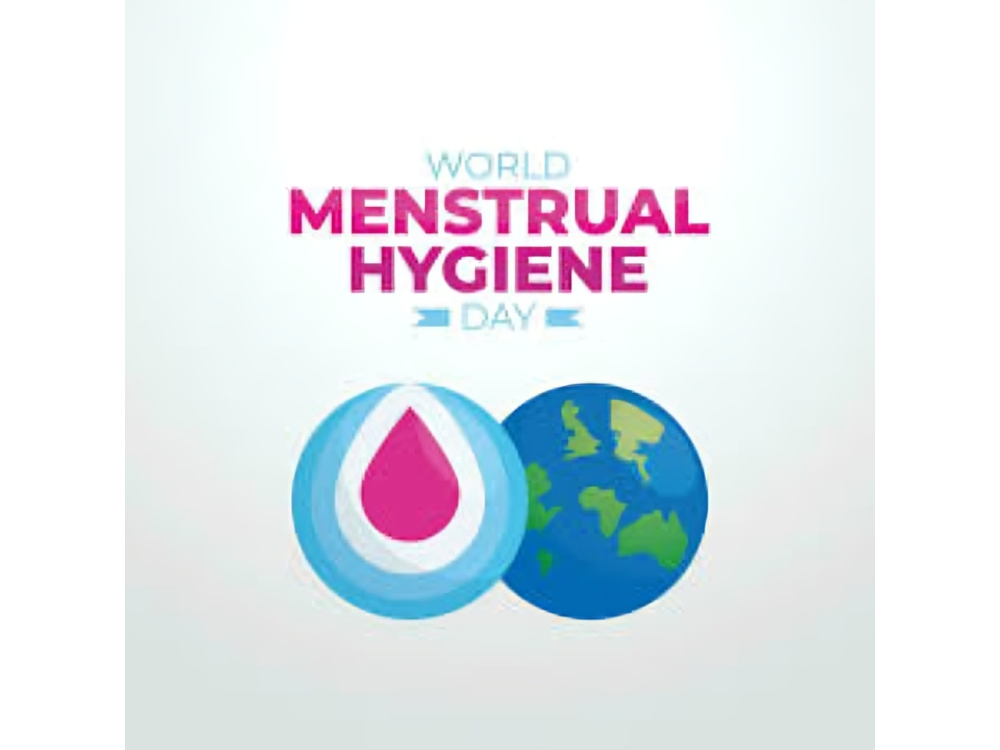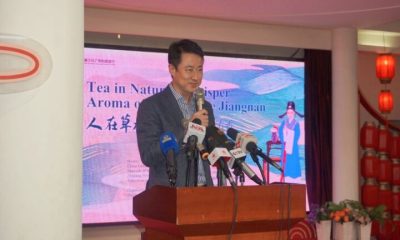Health
UI targets training Ten Thousand new geospatial experts-Official

The University of Ibadan has set a target to train 10,000 new researchers and students on the use of the Environmental Systems Research Institute (ESRI) geospatial tools.
Mr Ahmed Olanrewaju, Principal Systems Analyst, Management Information System Unit, University of Ibadan, said this in an interview with the News Agency of Nigeria (NAN) in Ibadan on Thursday.
Olanrewaju said the strategy was to explore the benefits of adopting ESRI technology to enable students and research communities have more access to spatial technological tools for research.
According to him, it is also to help in utilising its efficient data repository for information archiving Technology.
Olanrewaju said that since the University of Ibadan received the technology grant from the ESRI in 2014, it had utilised it to optimise research and enhance teaching.
“The university has radically migrated from traditional data collection and analysis processes to dynamic technology-driven research processes,’’ he said.
According to him, the benefit of adopting ESRI technology is enormous because UI students and research communities now have access to spatial technological tools for research and it utilises its efficient data repository for information archiving.
“This means that people who want to build on previous research; once they have the necessary approval, can access the required data sets and add to the knowledge pool.
“This is a very big one for the university as there would be no need to duplicate effort and time will not be wasted generating previously captured information,” he said.
He further stated that even non-science-based faculties of education and others have been adopting the use of technology for location-based data collection and analysis.
Olanrewaju stated that the university had been able to increase the number of students and researchers who now use location-based digital surveys compared to what was obtained in the past.
He said a major step taken by the university was to innovatively remove the problems students face in accessing software licenses.
Olanrewaju added that technology support services were now provided for those who had technical issues during working hours.
“For the first time, simultaneously, research in multiple locations is now coordinated, and data is collected and archived seamlessly. Through the use of this technology, researchers now have the capacity to even collect location-specific audio data.”
“Another major progress recorded is that Artificial Intelligence (AI) student programmers now use ESRI tools with their python knowledge to access special geo-spatial-data-sets for machine learning,” Olanrewaju said.
According to him, the university has set a target of training 10,000 new researchers and students to adopt the use of the ESRI geospatial tools. Presently, about 5,000 are using the technology, an improvement from 3,800 users in the last year.
He said the institution had been working on a project that will collect data sets from the 774 local government areas in Nigeria.
“At the end of the day, over 15,000 records will be accessed from respondents, which will be the first large-scale data collection in UI using ESRI tools,” he said.
Olanrewaju also said there was a need to enact policies for the adoption of location based technology research in Nigeria; for instance, researchers must collect and work with precise location-based data.
“Once students signup for research work, the University of Ibadan can now provide technology tools and platforms for use just as is obtainable in other universities around the world.
“Also, the university can do many things within the same ecosystem to harmonise research and provide access for use by government, industries, and stakeholders for the development of the country.
“Universities do not have to be maintaining several software to run their e-learning. ESRI technology is capable of supporting multidimensional e-learning for the tertiary institutions,” he said.
Some of the students who spoke on the use of the technology, Abiodun Awokoya from the Faculty of Arts, Thomas Adesina and Oluwadamilare Akindipe said that it had contributed immensely to their research work because ArcGIS has lots of tools and an easy user interface coupled with lots of documentation and an active community for support.
Health
Stakeholders Call for Better Menstrual Hygiene To Boost Health

Stakeholders have stressed the need for increased awareness and improved practices around menstrual hygiene, particularly to support better health outcomes and dignity for girls in underserved communities.
They made the call on Wednesday in Abuja ahead of the 2025 Menstrual Hygiene Day, commemorated globally every May 28 to address inequalities in menstrual health and hygiene.
The event was organised by Tabitha Cumi Foundation (TCF) under its Always Keeping Girls in School (AKGIS) project, with support from Charities Aid Foundation (CAF America).
Mrs Tayo Erinle, Executive Director of TCF, said menstrual hygiene remained a critical yet often overlooked aspect of reproductive health, especially among adolescent girls.
“Many girls live in households where no one provides sanitary pads or pays attention to that part of their lives.
“It happens monthly, and every girl deserves dignity and support,” she said.
Erinle added that more than 1,600 marginalised girls across 32 junior secondary schools in the FCT, Lagos, and Benue states were empowered through puberty education and menstrual hygiene management under the AKGIS project.
She said beneficiaries also received a one-year supply of Always sanitary pads and emergency kits.
“The project has boosted the girls’ confidence.
“Menstruation was once shrouded in secrecy, stigma, and confusion for many. Now, with access to correct information and education, they feel empowered,” she added.
Dr Adedolapo Fasawe, Mandate Secretary for the Health Services and Environment Secretariat, emphasised the importance of educating youths on reproductive health.
Represented by Dr Ruqayya Wamakko, Executive Secretary of the FCT Primary Health Care Board, she called for more sensitisation efforts to encourage young people to use health services in primary health centres.
“We give health talks, visit schools, form school clubs, and teach students how to care for themselves, maintain personal and menstrual hygiene, and stay safe,” she noted.
Mrs Nwakonye Onyirechi, Assistant Chief Investigative Officer in the Women and Children Department of the National Human Rights Commission (NHRC), reiterated the commission’s commitment to protecting the rights of the girl child.
“We go to schools to sensitise girls to their rights and encourage them to speak up when their rights are violated,” she said.
Dr Safiya Tamanuwa, Deputy Director of the Placement and Gender Unit at the Universal Basic Education Commission (UBEC), commended TCF for its support toward improving the health and well-being of schoolgirls.
Highlights of the event included the distribution of sanitary pads and kits, a literary presentation, and expert-led health talks.(NAN)
Health
Group urges Nigerians to embrace healthy habits to prevent diseases

The Society of Lifestyle Medicine of Nigeria (SOLONg) has advised Nigerians to embrace healthy preventive lifestyle habits to prevent the root causes of chronic and lifestyle-related diseases.
The President of SOLONg, Dr Moyosore Makinde, gave the advice in an interview in commemoration of the “Global Lifestyle Medicine Week” on Tuesday in Lagos.
NAN reports that the Global Lifestyle Medicine Week, taking place from May 18 to May 24, 2025, has the theme “Celebrating Healthy Habits: Inspire Change with D.
R.E.A.M.S.”Makinde, also an International Board-certified Lifestyle Medicine Physician, said the week was dedicated to raising awareness about the transformative power of lifestyle medicine in improving health outcomes and reducing the burden of chronic diseases worldwide.
According to her, lifestyle medicine empowers people to live healthier, happier and longer lives.
She explained that the D.R.E.A.M.S. acronym highlighted the six key pillars of lifestyle medicine that guide individuals toward healthier lives namely: Predominantly plant-based Diets, positive Relationships or social connections, Exercise, Avoidance of toxic substances, Mental wellness and stress management, and restorative Sleep.
She said that these pillars had been proven by scientific research to not only manage and prevent chronic diseases like coronary heart disease, diabetes, dementia and Alzheimer’s but also to promote a more sustainable and harmonious relationship with ourselves and with our planet.
Makinde added that it contributed to planetary health and the stability of our ecosystem.
“SOLONg is proud to announce its participation in Global Lifestyle Medicine Week, taking place from May 18 to May 24, 2025.
“Scientific studies, including numerous randomised clinical trials and longitudinal studies, have consistently shown the remarkable benefits of lifestyle interventions in reducing the incidence of chronic conditions.
“Additionally, these healthy habits play a pivotal role in strengthening resilience against infectious diseases.
“The ongoing impact of several pandemics has underscored the importance of adopting healthy behaviours, as poor lifestyle choices have been associated with worse disease severity and slower recovery times,” she said.
Contributing, the General Secretary of SOLONg, Dr Chika Anozie, said that Global Lifestyle Medicine Week aimed to foster a community of like-minded individuals and healthcare professionals committed to lifestyle medicine.
Anozie, also a Family Physician, said that SOLONg would organise various activities to mark the week, including a Webinars and educational workshops on lifestyle medicine topics.
She added that there would be courtesy visits and community outreach programmes promoting healthy habits, as well as social media campaigns sharing lifestyle medicine tips and resources.
“As we observe Global Lifestyle Medicine Week, it is clear that the need for Lifestyle Medicine is greater than ever.
“This is a clarion call for the government to create policies that promote healthy lifestyle practices while restricting behaviours that contribute to disease.
“We urge medical institutions to prioritise the accreditation of Lifestyle Medicine programs at both undergraduate and postgraduate levels.
“It is equally important that health professionals receive the proper training to effectively communicate these life-saving messages to the public.
“The Society encourages individuals to embrace the principles of healthy living, which are not only lifechanging but also long-lasting,” she said.(NAN)
Health
NAFDAC Clarifies Sachet Alcohol Ban Timeline

The National Agency for Food and Drug Administration and Control (NAFDAC) has clarified its stance regarding the nationwide ban on sachet alcohol.
Mr Kenneth Azikiwe, Director of the FCT Directorate of the agency, in an interview on Monday in Abuja that the temporary lifting of the ban was only valid until Dec.
31, 2025.He emphasised that the recent ministerial lifting of the ban was not permanent and urged the public to disregard misinformation suggesting that the government had permanently lifted the restriction.
“There is a ministerial lifting on the ban of sachet alcohol, but it is only temporary and will be reviewed by Dec. 31, 2025.
“After this date, the full enforcement of the ban will commence.
“The minister granted this temporary relief to allow manufacturers and regulators time to collaborate and ensure a more structured and effective implementation of the ban,” Azikiwe stated.”
He highlighted NAFDAC’s ongoing efforts to sensitise the public across the country, noting that awareness campaigns had reached every state.
“We have sensitised distributors, and we’ve emphasised that alcohol should not be sold to individuals under the age of 18, which is also clearly indicated on product labels,” he added.
Azikiwe also commended the Distillers and Beverages Association of Nigeria (DIBAN) for supporting the awareness drive.
He reassured the public that NAFDAC remained fully committed to regulating alcohol consumption and reiterated that sachet alcohol products containing less than 200 milliliters would be phased out after Dec. 2025.(NAN)




















